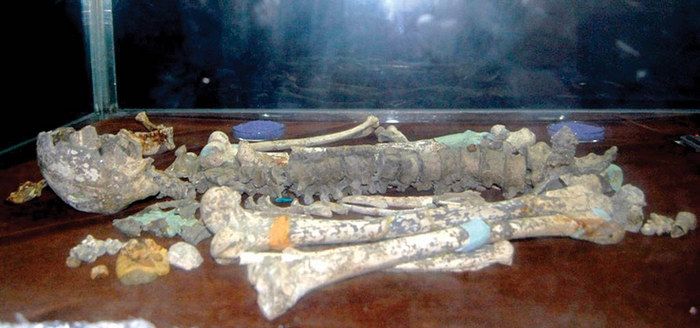Opinion: A pendatang gene in everyone


By Joachim Ng
If Lenggong Valley were set in Europe, it would host a million visitors yearly. But it’s in Perak, 50 km northeast of Kuala Kangsar. Have you heard of Perak Man, the oldest netizen of Lenggong? Well, maybe not. It was his misfortune to have settled down in the wrong state.
Perak tourism hasn’t developed the knack of harvesting silver dollars from ancient bones. Perak Man, who lived 10,000 years ago, was the ancestor of an Orang Asli tribe. His own ancestors were the first Sapiens (we humans) to step foot in Malaysia more than 30,000 years ago after a multi-generational trek along the coastlines of western, southern and southeastern Asia.
Today, one skeleton remains. If it were in Europe, this skeleton would be receiving lines of visitors every hour of the day. Perak Man is vitally important for our education, for he takes us on a time travel back to pre-history. He was a model of eco-living, teaching his descendants to make clothing from tree barks, waist belt from rattan, and longhouse-roofing from leaves. Their diet was wholly organic and comprised jungle plants, wild animals, and fish caught in Sungei Perak. They also grew crops in a pesticide-free manner.
Of great significance is the migration gene they bestowed on us. Check the links and you will find that the lineages of all humans go back to a lake district in East Africa. Once out of this lake district, the pattern of migration kept developing as migrant bands spawned new migrants every 500 years. Eventually, Malaysia was occupied.
But why do humans migrate? In all human brains, there exists a migration switch. Our primeval hunter-gatherer ancestors turned on this switch for one main reason: conflict avoidance. When a population reaches a maximum carrying capacity for any location, the conflict will ignite because of fierce competition for resources. That’s when the migration switch gets turned on.
With continuous migration to uninhabited territories, humanity managed to survive and prosper for 300,000 years. By 3000 BCE hunter-gatherer tribes had occupied most regions of the world. Migrations since then have intensified as civilised communities took the high road or the high seas to escape poverty in dense regions. Countries such as Malaysia continue to experience layers of inflowing migrants or pendatang.
Multi-ethnicity and its accompanying multi-culturalism and multi-religiosity — this is the global reality and we have to develop wholly inclusive strategies that leave out no citizen group. In this, we are failing, as we have tragically marginalised the Orang Asli. We badly need a fresh kind of politics.


